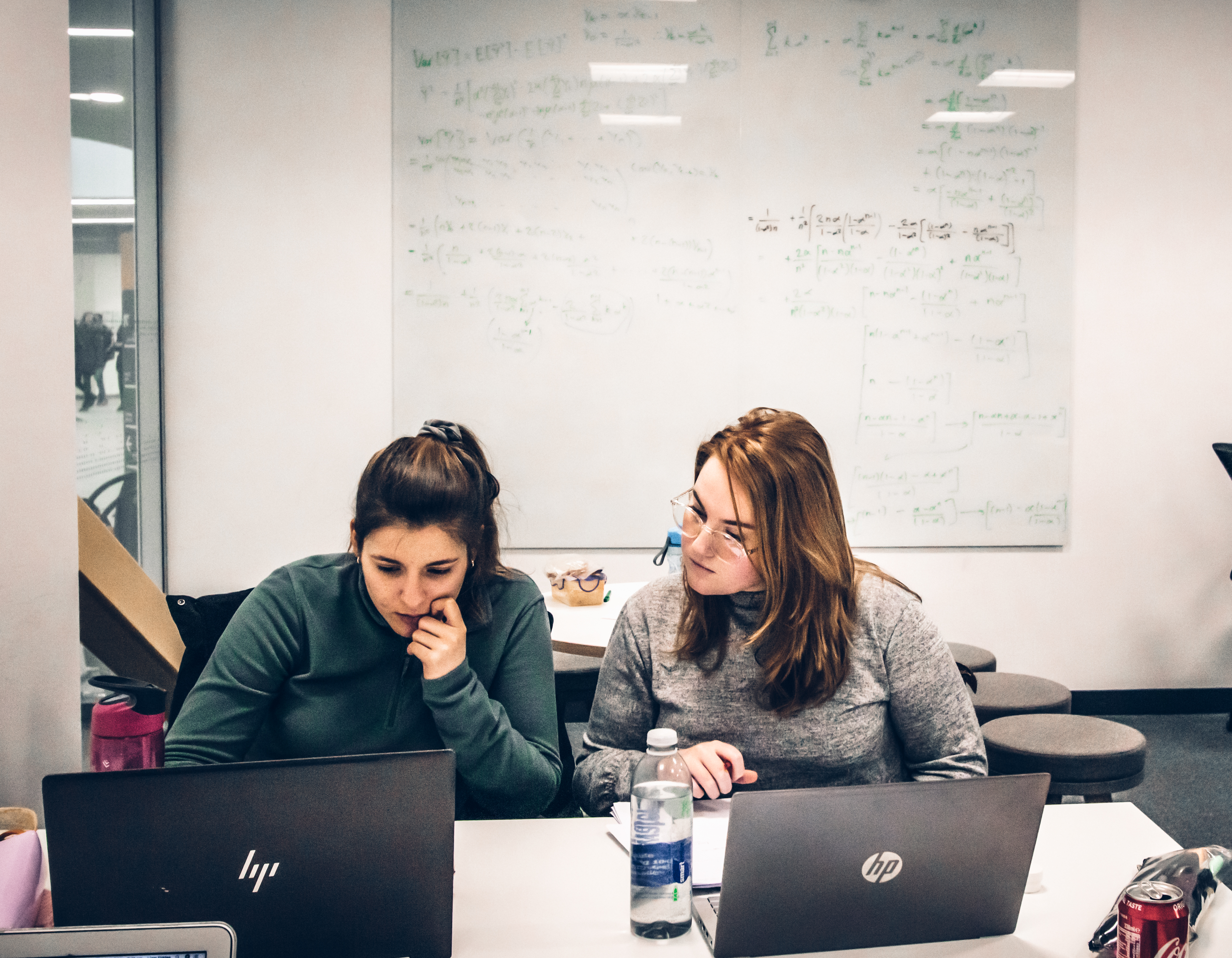Chapter 1 Introduction

Figure 1.1: Two peers studying together.
The aim of this booklet is to give hints and tips for the effective study of mathematics. It contains a lot of simple, straightforward advice which many students have found helpful in the past, although you may find that not everything here suits you. The suggestions are offered only as guidelines: some of them will work for you and others will not.
This booklet is a general guide and your own institute will provide a bespoke induction to any new student; this will include essentials such as your log-on details, how to access course materials via the virtual learning environment (Canvas, Blackboard, Moodle to name a few), your class timetable, personal tutor/mentor details, and how to find additional support from university services.
It is important to find out how and where you work best and so time invested during your first term or semester in experimenting with study methods will pay off later. You will need to persevere with new approaches to learning, for example taking detailed notes during lectures and solving set problems on your own (or with peers). It will take time to find your best way of working, so be patient and stick with the task.
The transition to university can be difficult. Not only are there inevitable and substantial changes in your social and personal circumstances - feelings of strangeness, loneliness and even euphoria are common - but you will also find dramatic changes in the teaching/ learning regime. At university, the pace of work is much greater and you need to be more self-motivate as you will spend less time in direct, personal contact with staff. You will still receive feedback on your academic performance predominantly via homework and tutorials.
Remember that while you need to put in the hours required for your classes and the follow-up study, it is important to have a work-life balance. Join the sports club, the music group, the social club… Take time to be in nature, eat well, spend time with friends. It is a balancing act, but you need to look after yourself or you can’t get perform at your best and reach your academic goals.
Although you will have to learn what is best for you, there is lots of support available - use it! You will have a mentor/personal tutor in your academic department who can advise on any academic matter (such as module choices) and will be able to direct you to the relevant support service for other matters such as disability services, financial services, study skills, health and wellbeing, careers service and more.
Enjoy!